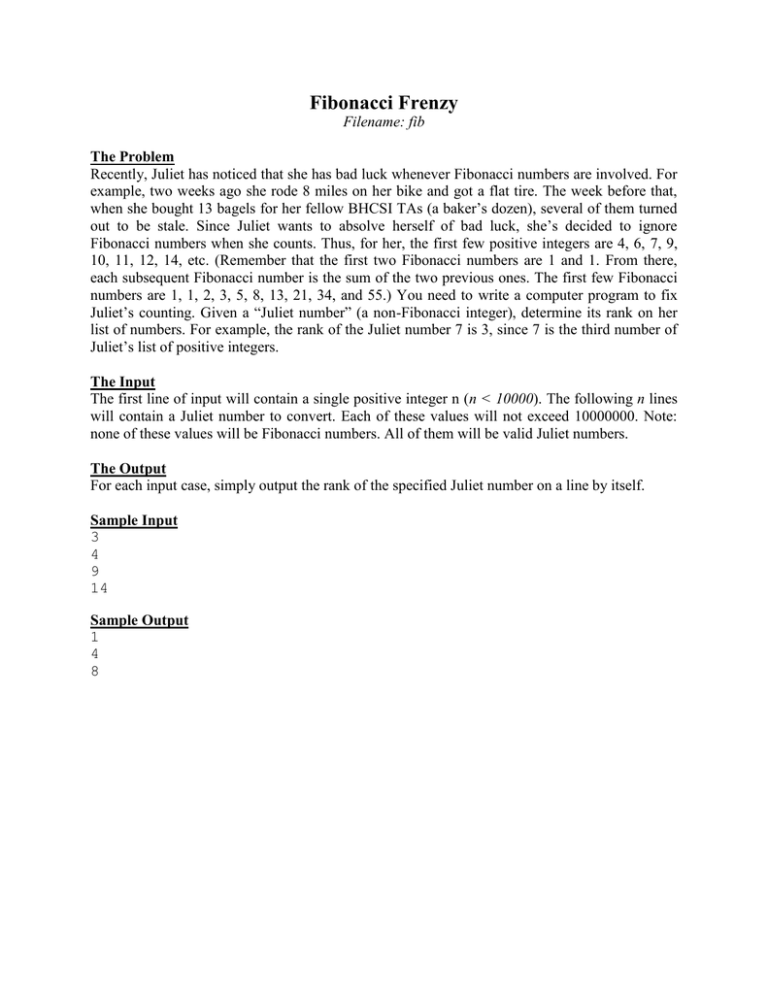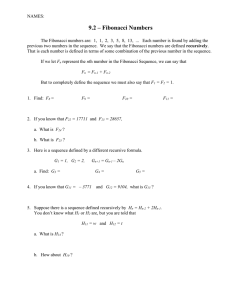Fibonacci Frenzy
advertisement

Fibonacci Frenzy Filename: fib The Problem Recently, Juliet has noticed that she has bad luck whenever Fibonacci numbers are involved. For example, two weeks ago she rode 8 miles on her bike and got a flat tire. The week before that, when she bought 13 bagels for her fellow BHCSI TAs (a baker’s dozen), several of them turned out to be stale. Since Juliet wants to absolve herself of bad luck, she’s decided to ignore Fibonacci numbers when she counts. Thus, for her, the first few positive integers are 4, 6, 7, 9, 10, 11, 12, 14, etc. (Remember that the first two Fibonacci numbers are 1 and 1. From there, each subsequent Fibonacci number is the sum of the two previous ones. The first few Fibonacci numbers are 1, 1, 2, 3, 5, 8, 13, 21, 34, and 55.) You need to write a computer program to fix Juliet’s counting. Given a “Juliet number” (a non-Fibonacci integer), determine its rank on her list of numbers. For example, the rank of the Juliet number 7 is 3, since 7 is the third number of Juliet’s list of positive integers. The Input The first line of input will contain a single positive integer n (n < 10000). The following n lines will contain a Juliet number to convert. Each of these values will not exceed 10000000. Note: none of these values will be Fibonacci numbers. All of them will be valid Juliet numbers. The Output For each input case, simply output the rank of the specified Juliet number on a line by itself. Sample Input 3 4 9 14 Sample Output 1 4 8



